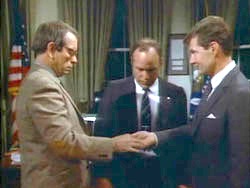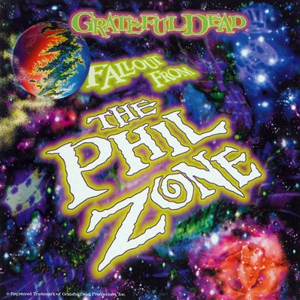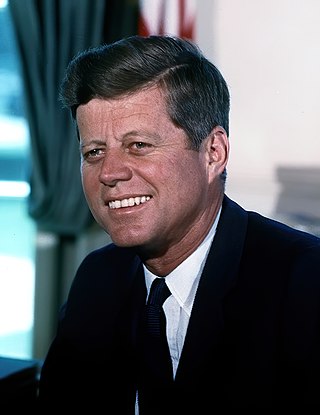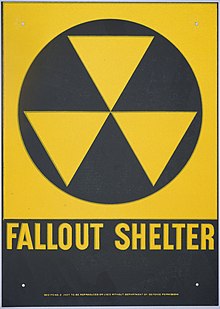
Barry Morris Goldwater was an American politician and major general in the Air Force Reserve who served as a United States senator from 1953 to 1965 and 1969 to 1987, and was the Republican Party's nominee for president in 1964.

The Cuban Missile Crisis, also known as the October Crisis in Cuba, or the Caribbean Crisis, was a 13-day confrontation between the governments of the United States and the Soviet Union, when American deployments of nuclear missiles in Italy and Turkey were matched by Soviet deployments of nuclear missiles in Cuba. The crisis lasted from 16 to 28 October 1962. The confrontation is widely considered the closest the Cold War came to escalating into full-scale nuclear war.

A fallout shelter is an enclosed space specially designated to protect occupants from radioactive debris or fallout resulting from a nuclear explosion. Many such shelters were constructed as civil defense measures during the Cold War.

The Partial Test Ban Treaty (PTBT), formally known as the 1963 Treaty Banning Nuclear Weapon Tests in the Atmosphere, in Outer Space and Under Water, prohibited all test detonations of nuclear weapons except for those conducted underground. It is also abbreviated as the Limited Test Ban Treaty (LTBT) and Nuclear Test Ban Treaty (NTBT), though the latter may also refer to the Comprehensive Nuclear-Test-Ban Treaty (CTBT), which succeeded the PTBT for ratifying parties.

The 1964 United States presidential election was the 45th quadrennial presidential election. It was held on Tuesday, November 3, 1964. Incumbent Democratic President Lyndon B. Johnson defeated Republican Senator Barry Goldwater in a landslide victory. Johnson was the fourth and most recent vice president to succeed the presidency following the death of his predecessor and win a full term in his own right. Johnson won the largest share of the popular vote for the Democratic Party in history, 61.1%, and the highest for any candidate since the advent of widespread popular elections in 1824.
"The Sixteen-Millimeter Shrine", starring Ida Lupino, is episode four of the American television series The Twilight Zone. It originally aired on October 23, 1959, on CBS. The title is a reference to 16 mm film.

"Time Enough at Last" is the eighth episode of the American anthology series The Twilight Zone, first airing on November 20, 1959. The episode was adapted from a short story by Lynn Venable, which appeared in the January 1953 edition of If: Worlds of Science Fiction.
"The Whole Truth" is episode 50 of the American television anthology series The Twilight Zone. It originally aired on January 20, 1961 on CBS. It was one of the six episodes of the second season which was shot on videotape in a short-lived experiment aimed to cut costs.

Walter Wilson Jenkins was an American political figure and longtime top aide to U.S. President Lyndon B. Johnson. Jenkins' career ended after he was arrested and charged with "disorderly conduct" with another man in a public restroom in Washington, D.C. The incident happened weeks before the 1964 presidential election, in an era in which homosexual behavior was widely condemned.

John Clarke was an American actor. Clarke is recognized for originating and portraying Mickey Horton on the NBC soap opera Days of Our Lives for 39 years, beginning with the debut of the program in 1965, until his retirement in 2004.

"Profile in Silver" is the first segment of the twentieth episode of the first season of the 1985 revival of The Twilight Zone television series. In this segment, a time traveler interferes in the assassination of John F. Kennedy, and must find a way to repair the resulting damage to the timeline.

The Twilight Zone is an American fantasy science fiction horror anthology television series created and presented by Rod Serling, which ran for five seasons on CBS from October 2, 1959, to June 19, 1964. Each episode presents a standalone story in which characters find themselves dealing with often disturbing or unusual events, an experience described as entering "the Twilight Zone", often with a surprise ending and a moral. Although often considered predominantly science-fiction, the show's paranormal and Kafkaesque events leaned the show much closer to fantasy and horror. The phrase "twilight zone" has entered the vernacular, used to describe surreal experiences.
"The Old Man in the Cave" is a half-hour episode of the original version of The Twilight Zone. It is set in a post-apocalyptic 1974, ten years after a nuclear holocaust in the United States. The episode is a cautionary tale about humanity's greed and the danger of questioning one's faith in forces greater than oneself.

Mike Kellin was an American actor.

Fallout from the Phil Zone is a double compilation album of live recordings by the Grateful Dead handpicked by the band's bassist Phil Lesh. It contains the first Grateful Dead CD releases of "In the Midnight Hour" and Bob Dylan's "Visions of Johanna".

John F. Kennedy's tenure as the 35th president of the United States began with his inauguration on January 20, 1961, and ended with his assassination on November 22, 1963. Kennedy, a Democrat from Massachusetts, took office following his narrow victory over Republican incumbent vice president Richard Nixon in the 1960 presidential election. He was succeeded by Vice President Lyndon B. Johnson.

From March 10 to June 2, 1964, voters of the Republican Party elected 1,308 delegates to the 1964 Republican National Convention through a series of delegate selection primaries and caucuses, for the purpose of determining the party's nominee for president in the 1964 United States presidential election.

The Berlin Crisis of 1961 was the last major European political and military incident of the Cold War concerning the status of the German capital city, Berlin, and of post–World War II Germany. The crisis culminated in the city's de facto partition with the East German erection of the Berlin Wall.
The Berlin Crisis of 1958–1959 was a crisis over the status of West Berlin during the Cold War. It resulted from efforts by Soviet leader Nikita Khrushchev to react strongly against American nuclear warheads located in West Germany, and build up the prestige of the Soviet satellite state of East Germany. American President Dwight D. Eisenhower mobilized NATO opposition. He was strongly supported by German Chancellor Konrad Adenauer, but Great Britain went along reluctantly. There was never any military action. The result was a continuation of the status quo in Berlin, and a move by Eisenhower and Khrushchev toward détente. The Berlin problem had not disappeared, and escalated into a major conflict over building the Berlin Wall in 1961. See Berlin Crisis of 1961.
Marzani & Munsell (1955-1967) was an American book publisher of the mid-20th Century, based in Manhattan, which published liberal and leftist books, starting with False Witness by Harvey Matusow.















